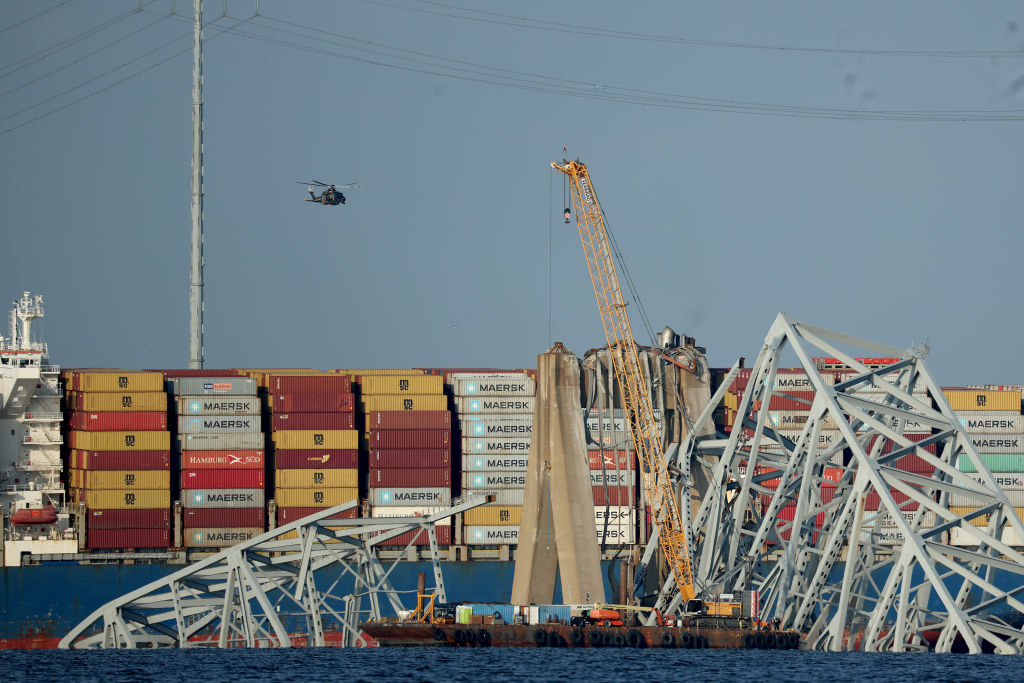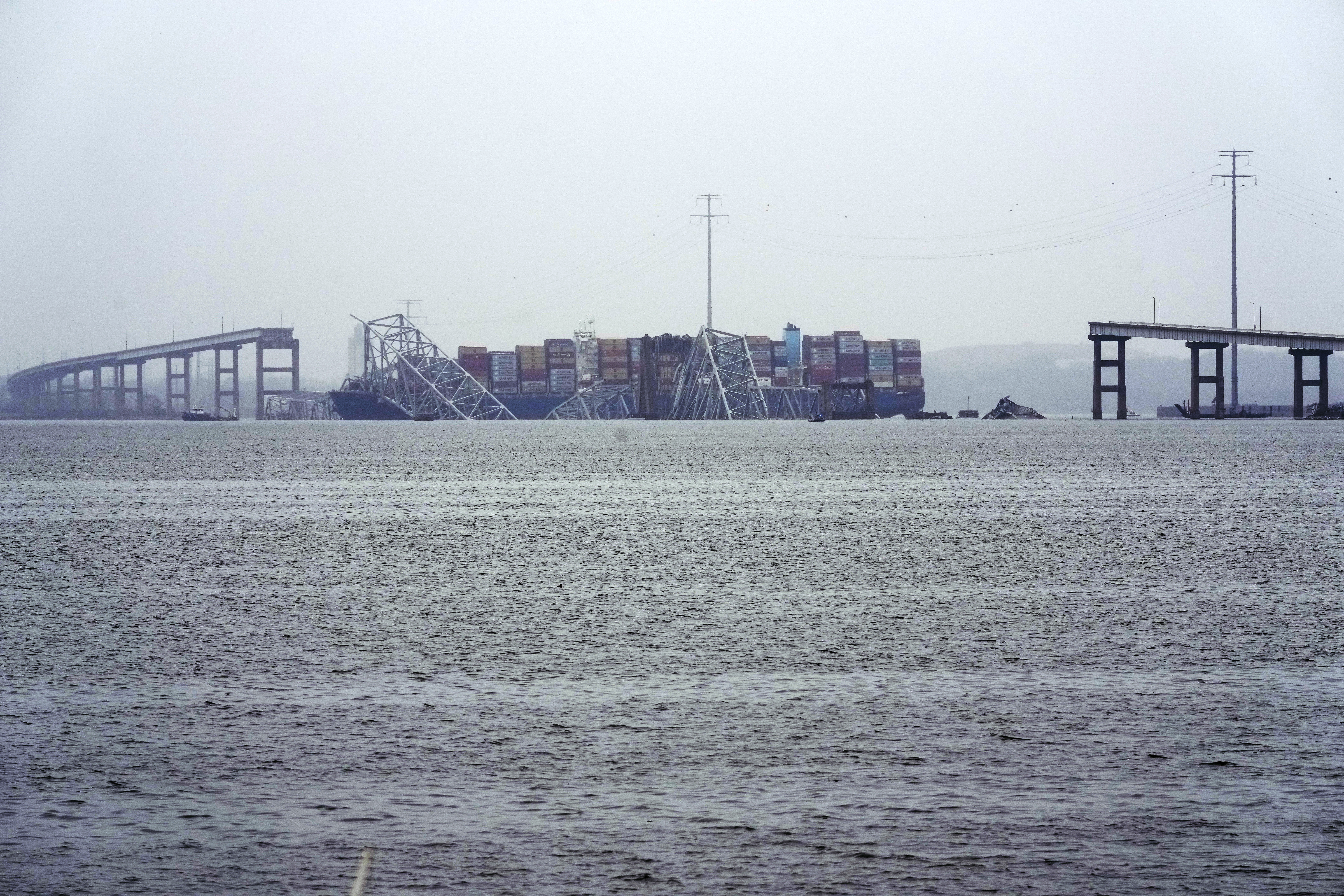Gov. Wes Moore said removing the wreckage is just the first step in a long road to recovery. News4’s Dominique Moody has more on the strategy being used to cut up the bridge.
Teams of engineers are working on the intricate and careful process of hauling away the twisted steel and shattered concrete of the Francis Scott Key Bridge in Maryland while also trying to recover the bodies of four workers still missing and presumed dead.
The bridge was sent crashing into the Patapsco River on Tuesday after a massive cargo ship crashed into one of its main supports.
“With a salvage operation this complex — and frankly with a salvation operation this unprecedented — you need to plan for every single moment,” Maryland Gov. Wes Moore said as one of the largest cranes on the U.S. East Coast loomed behind him.
Seven floating cranes — including the massive one capable of lifting 1,000 tons — 10 tugboats, nine barges, eight salvage vessels and five Coast Guard boats are on site in the water southeast of Baltimore.
The broken pieces of the bridge, including its steel trusses, weigh as much as 4,000 tons.
The experts need to figure out how to “break that bridge up into the right-sized pieces that we can lift,” U.S. Coast Guard Rear Adm. Shannon Gilreath said.
All of the wreckage is blocking ships from entering or leaving the Port of Baltimore, and is making the search for the missing workers extremely difficult.
The victims were members of a crew fixing potholes on the span when it was destroyed. They were from Mexico, Guatemala, Honduras and El Salvador, officials said.
At least eight people initially went into the water when the ship struck the bridge column. Two of them were rescued.
Get a weekly recap of the latest San Francisco Bay Area housing news. Sign up for NBC Bay Area’s Housing Deconstructed newsletter.
Two bodies have been recovered from a pickup truck, but the murky water and the massive tangle of debris under the water is hindering the divers' efforts.
The divers "can’t even see their hands,” said Donald Gibbons, an instructor with Eastern Atlantic States Carpenters Technical Centers. “So we say zero visibility. It’s very similar to locking yourself in a dark closet on a dark night and really not being able to see anything.”
The crew of the cargo ship Dali, which is managed by Synergy Marine Group, remains on board with the remains of the bridge around it. The vessel is owned by Grace Ocean Private Ltd. and was chartered by Danish shipping giant Maersk. The crew is being interviewed and will likely be needed to help get the ship out of the channel once more debris is removed.
The collision and collapse appeared to be an accident that came after the ship lost power. Federal and state investigators are still trying to determine why.
There were concerns about possible environmental problems, but there are no indications in the water of active releases from the ship or materials hazardous to human health, said Adam Ortiz, the Environmental Protection Agency’s mid-Atlantic Regional Administrator.
Officials are also trying to figure out how to handle the economic impact of a closed port and the severing of a major highway link. The bridge was completed in 1977 and carried Interstate 695 around southeast Baltimore.
Maryland transportation officials are planning to rebuild the bridge, promising to consider innovative designs or building materials to hopefully shorten a project that could take years.
President Joe Biden’s administration has approved $60 million in immediate aid and promised the federal government will pay the full cost to rebuild.
Ship traffic at the Port of Baltimore remains suspended, but the Maryland Port Administration said trucks were still being processed at marine terminals.
The loss of a road that carried 30,000 vehicles a day and the port disruption will affect not only thousands of dockworkers and commuters, but also U.S. consumers, who are likely to feel the impact of shipping delays. The port handles more cars and more farm equipment than any other U.S. facility.
Scott Cowan, president of the International Longshoremen’s Association Local 333, said the union was scrambling to help its roughly 2,400 members whose jobs are at risk of drying up.
“If there’s no ships, there’s no work,” he said. “We’re doing everything we can.”



